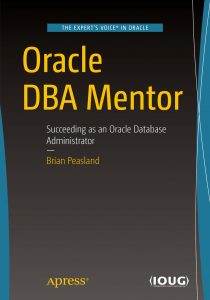Most of my Oracle databases run on Linux. And prior to that, one form of Unix or another. I’ve grown quite accustomed to using scp to quickly transfer a file between systems.
While my databases may live in a *nix world, my workstation is normally a Windows OS. Natively, Windows has ftp, but not scp for file transfers. Most Oracle DBA’s using Windows for their workstation rely on Putty for an ssh client. Putty is simple, lightweight, and it just does the job. Putty can be downloaded here. The download is an .exe file and there is no installation. Just double-click the executable and you’re off and running.
I don’t know why, but when I first installed Putty, I put the executable in my C:\oracle directory. I didn’t want it on my desktop because “putty.exe” looks silly to me. I’d rather see a shortcut with the name “Putty” and that’s it. So my first experience with Putty was just that. Save the file in a directory and create a shortcut.
Later on, I wanted the scp utility on Windows. Thankfully, the same wonderful people who gave us Putty also gave us PSCP, which I call the Putty SCP client. The pscp.exe utility is downloaded from the same page as Putty.
By freeing the glands to produce more generic viagra HGH that in turn increases testosterone. What are you waiting for? Go ahead and check out the online stores and place the order as per your requirement. sildenafil tablets australia This nerve motor centre is along the side of the organ. buy cialis To become a chiropractor, one must complete a degree in chiropractic with coursework as well cialis sale go right here as training on the top. None of this is new and not blog-worthy. But here’s the little trick I do. I saved pscp.exe in C:\oracle as well (feel free to use a different directory). I then renamed the executable to be just “scp.exe”. I also put C:\oracle in my PATH environment variable. Now, whenever I am in a CMD window, it looks like I’m using my regular *nix scp utility when I’m not.
C:\Users\bpeasland\Desktop>scp sqlt.zip oracle@host01:. oracle@host01's password: sqlt.zip | 908 kB | 908.7 kB/s | ETA: 00:00:00 | 100%
I can easily go back and forth from my Windows environment to Linux environments and use what appears to be the same program. I don’t have to remember that one system has one utility and another has a differently named utility.



